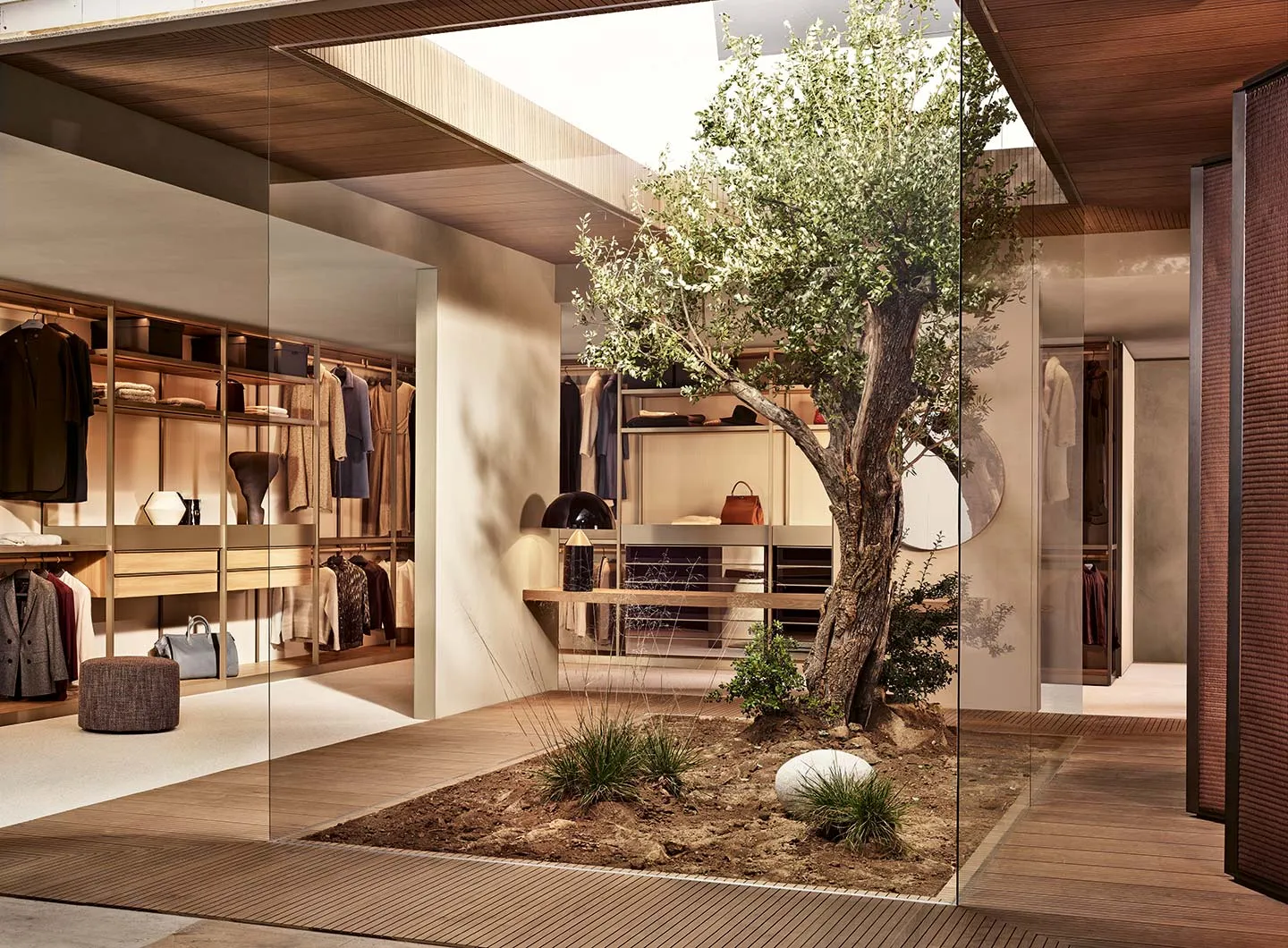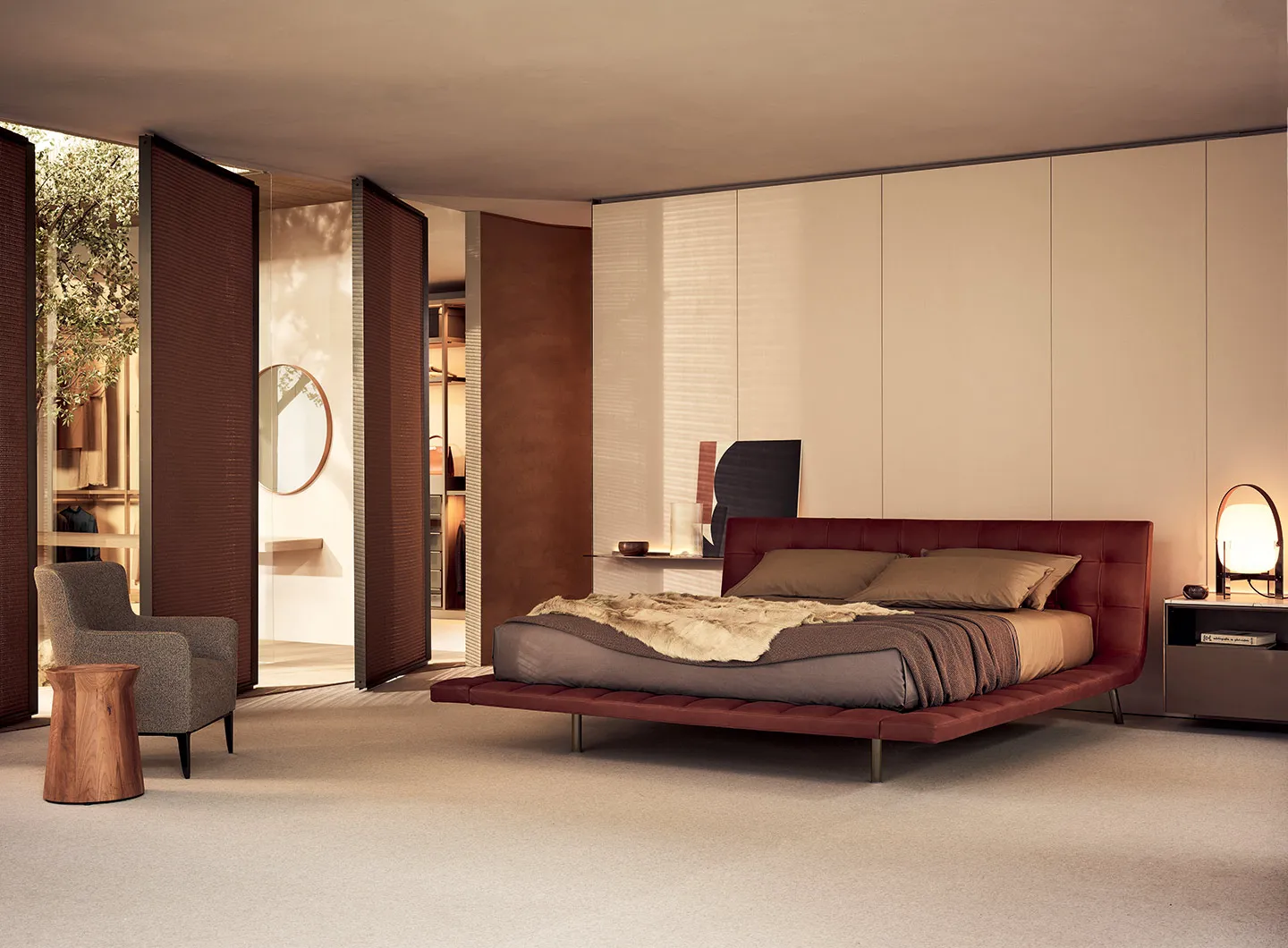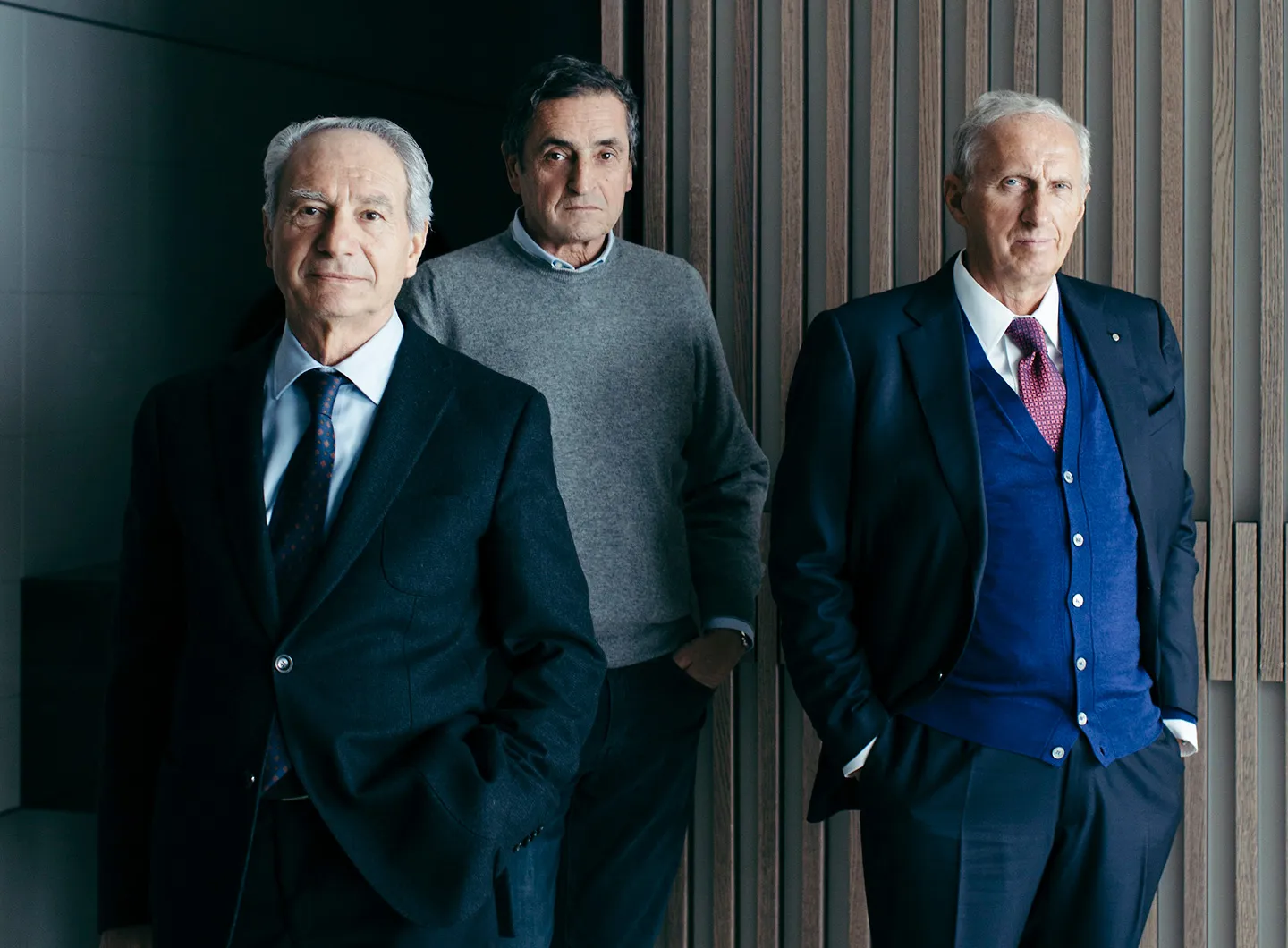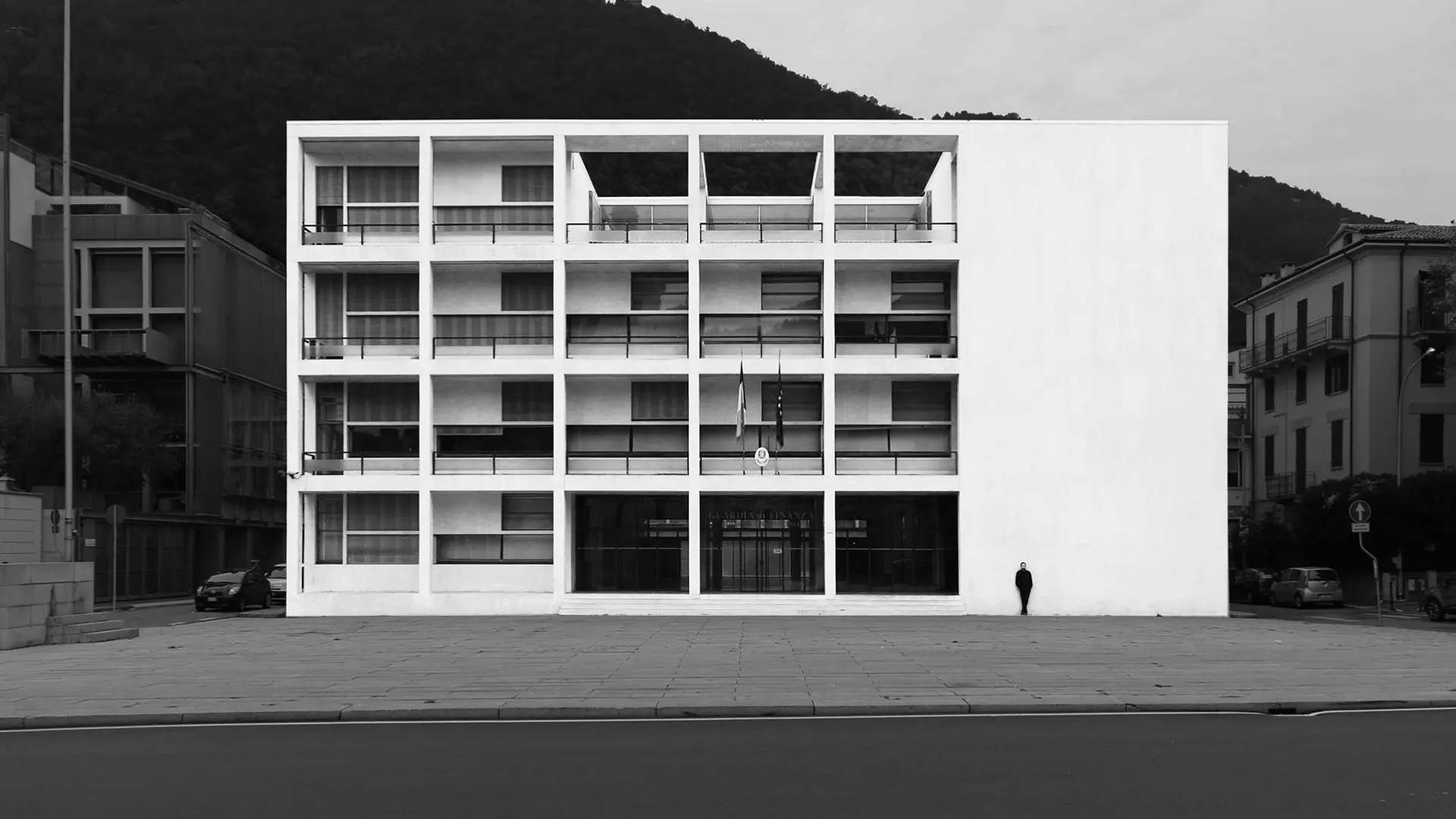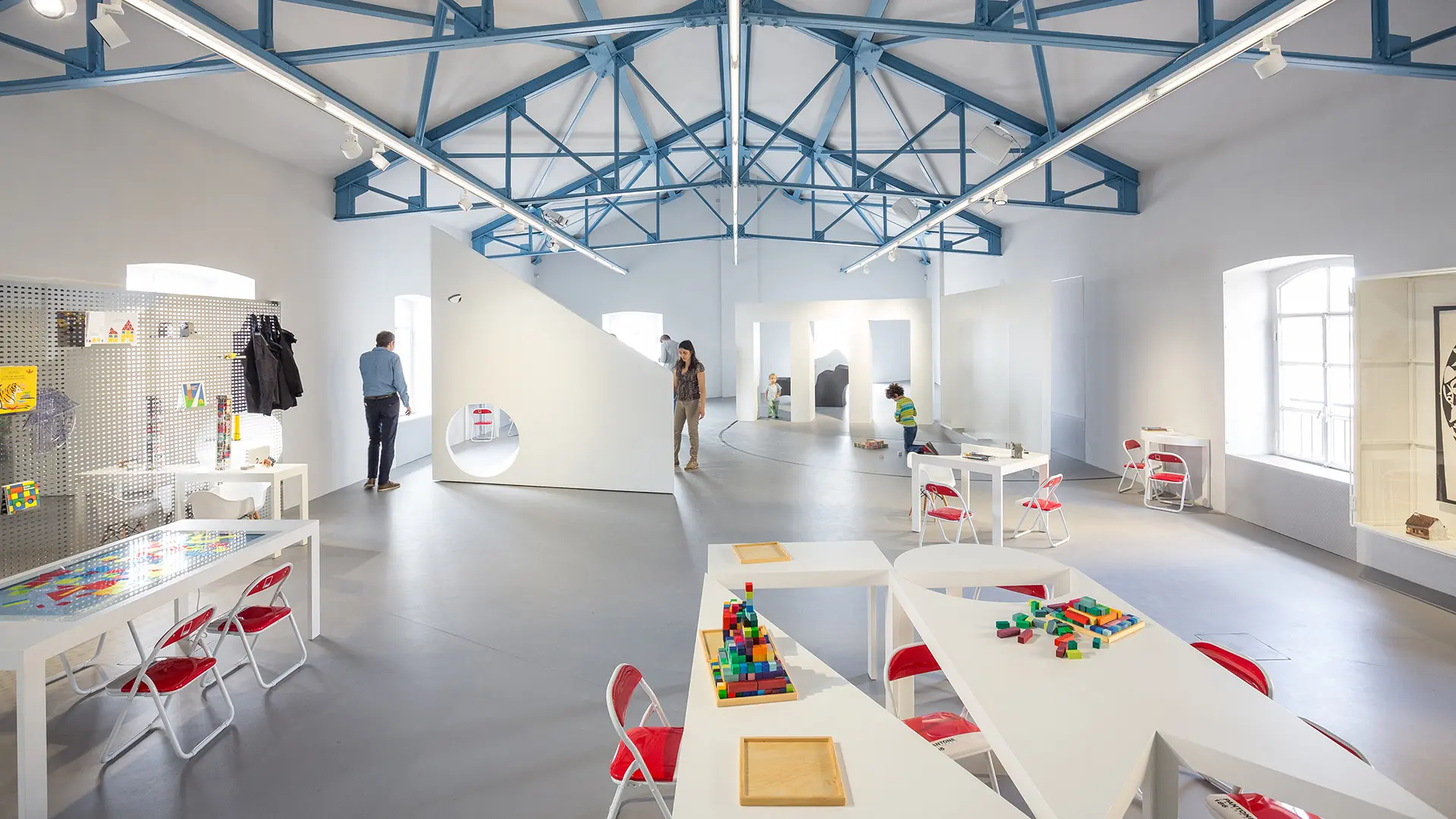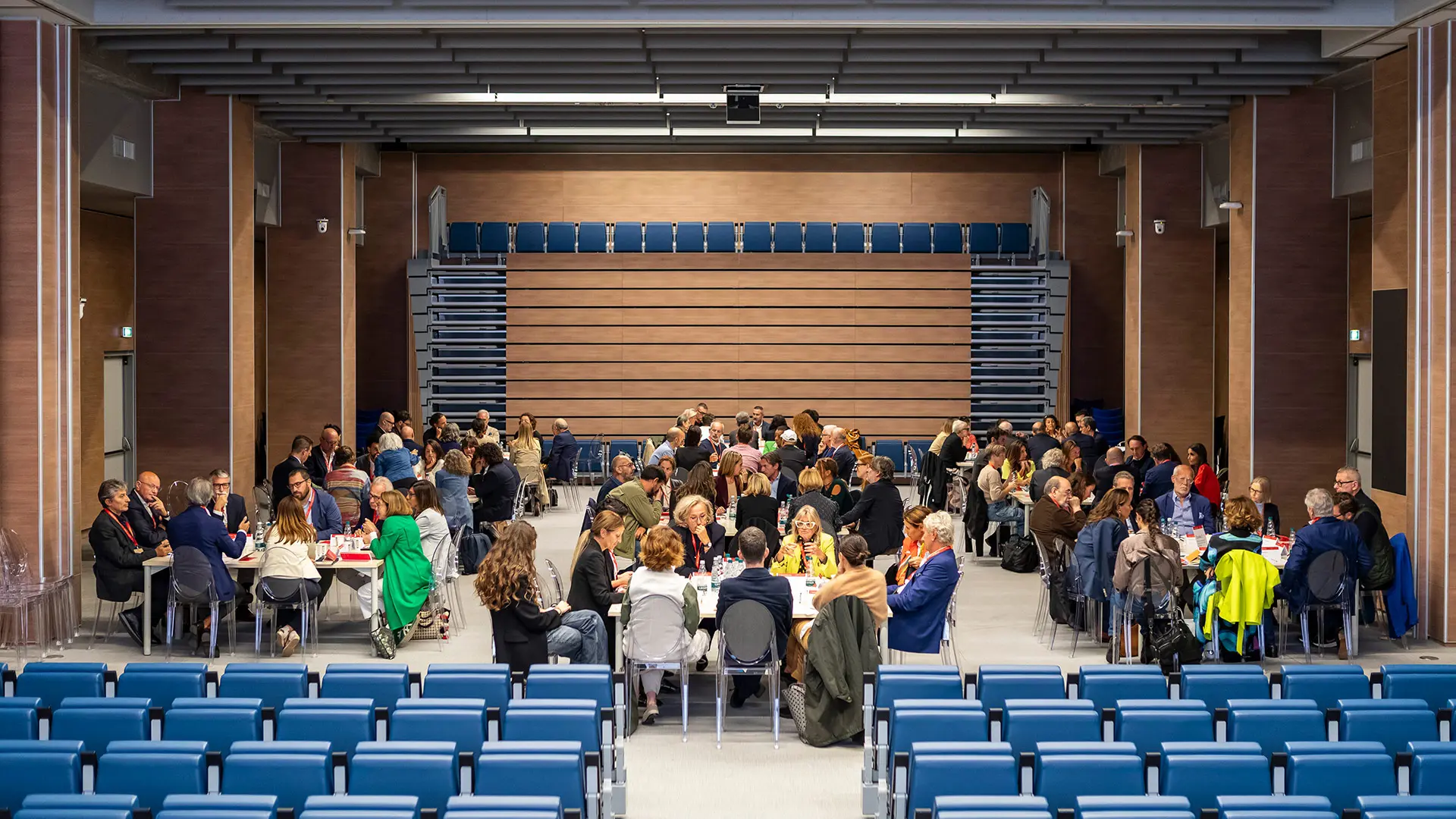Pure volumes, minimal or non-existent decoration, primacy of functionality, harnessing new materials: from the Casa del Fascio in Como to the railway station in Florence, the story of an experimental period that, after almost a century and several attempts at damnatio memoriae, remains a tangible presence in Italy.
Poliform - a gift for doing things well
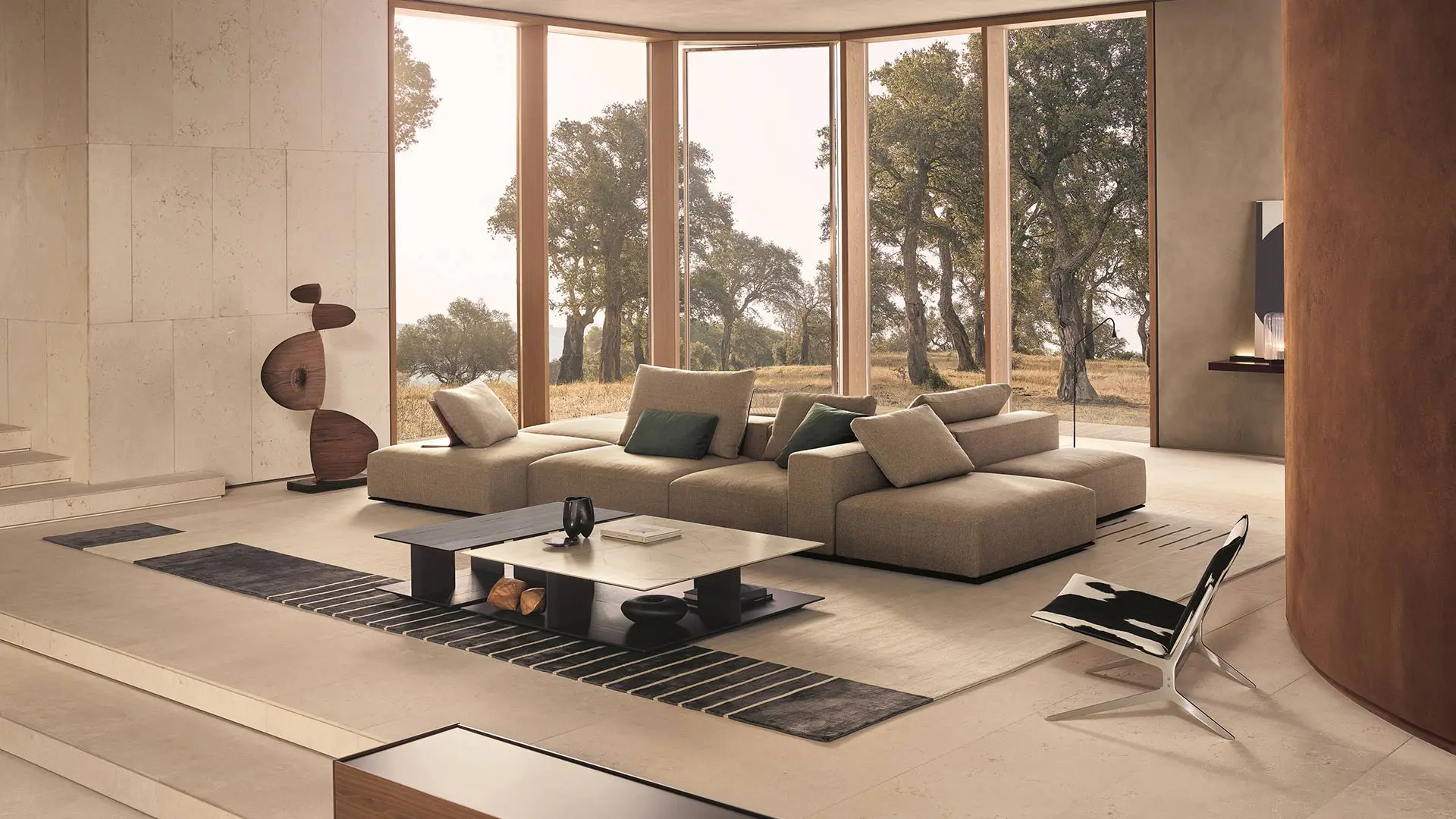
Divano Westside, design Jean-Marie Massaud
Fine Italian design, from the Brianza area to the rest of the world. Great designers and excellent results have left their mark from the '70s onwards. Without sacrificing the taste for details.
An undisputed interpreter of the most up-to-date lifestyle and living trends, and of the changes taking place in a constantly-changing market increasingly geared to globalisation. Poliform was founded in 1970, an evolution of one of the many small, family-run artisan enterprises dotted about the productive and hard-working province of Brianza, which has passed its precious wood and woodworking knowledge down through the generations.
The Inverigo-based company, now with 6 production units within a five-metre kilometre radius, is oriented towards the design world, and immediately stands out for its powerful industrial vocation, harnessing the potential of serial and engineered production to the full. This has informed flexible modular systems and furnishing accessories for every domestic space, which are one of company’s unrivalled manufacturing strong points: from bookcases to containers, wardrobes, beds and, later, kitchens and upholstereds.
Thanks to the technical skills and know-how of the three founding partners - and cousins - Alberto and Aldo Spinelli and Giovanni Anzani, still at the helm, alongside the third generation, it did not take long for the company to become an industrial reality, whilst maintaining its family feel. The internal governance actually states that the company must be led by three people, one representative of each founding family, in a bid to continue to keep this family dimension and the incredibly close link between the work, lives, passions and aspirations of each of its members alive. The jury motivations underpinning the assignation of the 2018 Golden Compass Award, underscore precisely this combination of affection and intent: “It is often said that to run fast you have to run alone, but to go far you have to run with others. However, this is not the case for these three who were first friends and then partners and who have been able to run fast and far through constantly focusing themselves on the culture of design. This represents an entrepreneurial commitment that over time they have been able to combine with an equally important institutional commitment for the spreading and safeguarding of Made in Italy.”
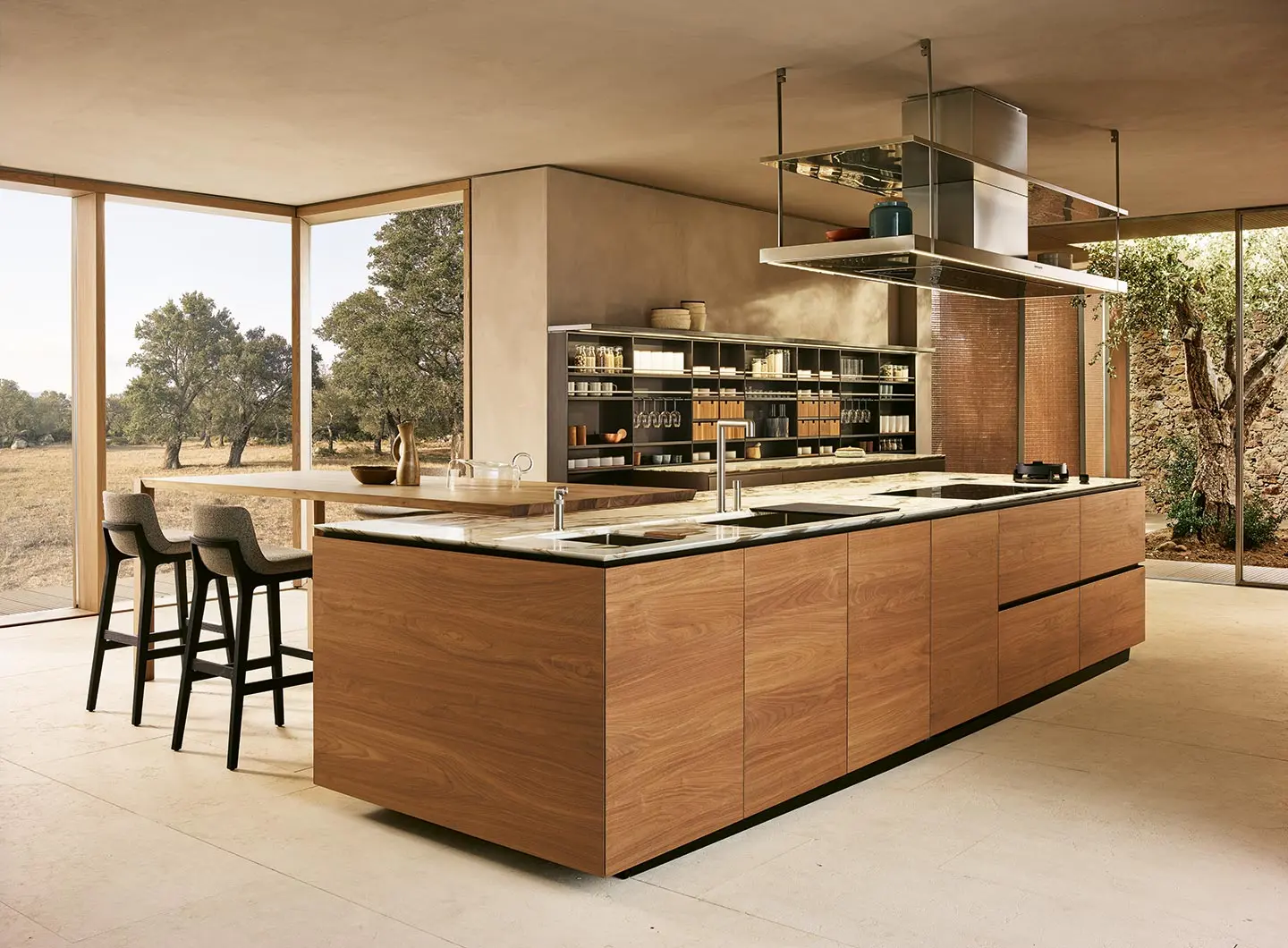
Cucina Artex, design R&D Poliform
Their unrelenting commitment and innovative approach to design, fuelled by maximum creativity, saw the manufacturing extend to kitchens with the acquisition of Varenna – founded in 1950 and recognised from the outset as one of the most proactive Italian kitchen furnishing brands – which came under the Poliform brand umbrella in 1996. Within just a couple of decades, in 2018, it became totally identified with the main company, taking on a unique and consistent corporate identity whilst vaunting the values and characteristics of a company that has always been geared to the future.
At the start of the new millennium, further far-sighted investment led to the launch of the Poliform contract brand, boosting the company’s know-how with regard to large-scale supply and different aesthetics and purposes to those catered for by the serial product market. It was also in a position to create typologies not previously in its collections, from bathrooms to doors and even lighting. Major projects include London’s West End Quay complex, the AOL Time Warner Center in New York, the presidential chambers at the Clinton Library in Little Rock and the Palmolive Building in Chicago, as well as luxury hotels such as the Café Royal in London, the Conservatorium in Amsterdam, the Mar Adentro in Mexico and the Mandarin Oriental in Milan.
One of the keys to its international success is undoubtedly the input of prestigious designers, who have each put their own spin on the Poliform style – harmonious, understated but innovative – from Italian designers such as Giuseppe Bavuso, Riccardo Blumer, Carlo Colombo, Rodolfo Dordoni, Paola Navone, Paolo Piva and Studio Kairos to international ones like Soo Chan, Emmanuel Gallina, Daniel Libeskind, Jean-Marie Massaud and Marcel Wanders.
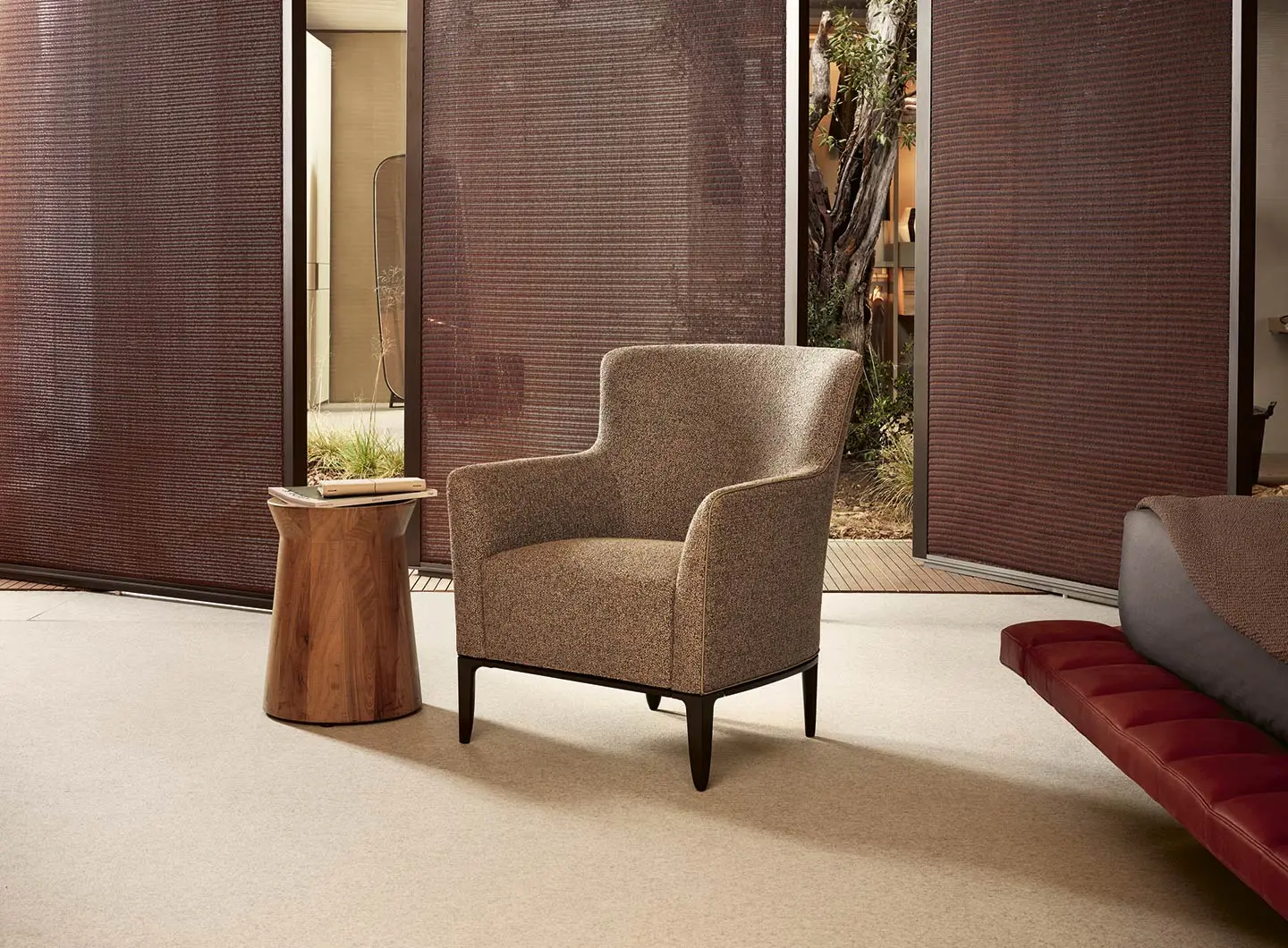
Poltrona Gentleman Single, design Marcel Wanders
The major factor behind its global success, underpinned by a network of 80 monobrand showrooms and 750 dealers in 85 countries, is its quality, inherent in the company DNA and played out in innovation, stylistic research and technology. When it comes to materials, the focus is on reliability and durability, and so only class EPF-S E0.5 wood particleboard panels are used, with minimal formaldehyde content and release; certified paints devoid of heavy metals and Class I or II solvents; tempered safety glass (up to 5 times stronger than normal glass) and hardwearing, scratch, heat and water-resistant high pressure laminate kitchen countertops. The mechanical components, such as the drawer runners for example, are put through 100,000 opening and closure cycles, while the door hinges are tested 200,000 times, equivalent to a door being opened eight times a day, every day, for … 68 years!
The onus on quality also shines through the importance given to respecting other people, both singly and collectively. Conscious of its social duties, the company has adopted an environmentally friendly policy to encourage real sustainable development, drawing up a document on environmental policy published on its website – in which it states that one of its objectives is to contribute “to the growth of the environmental awareness of customers, suppliers and other interested parties through an activity which, whilst supplying high-quality products, also involves all relevant actors in an information programme concerning the environmental concerns involved.” Much attention has therefore been paid to the use of low environmental impact materials from certified FSC (Forest Stewardship Council) suppliers; glue-free packaging, making it easier to take apart, reclaim and recycle; banning the use of timber from protected exotic forests; recovering manufacturing waste for energy purposes, ensuring that less refuse goes into circulation and that fuel oil consumption is cut; using printer paper exclusively from certified forests, and building the 765-panel solar plant at the Poliform Lab, a generator of ideas and trend observatory.
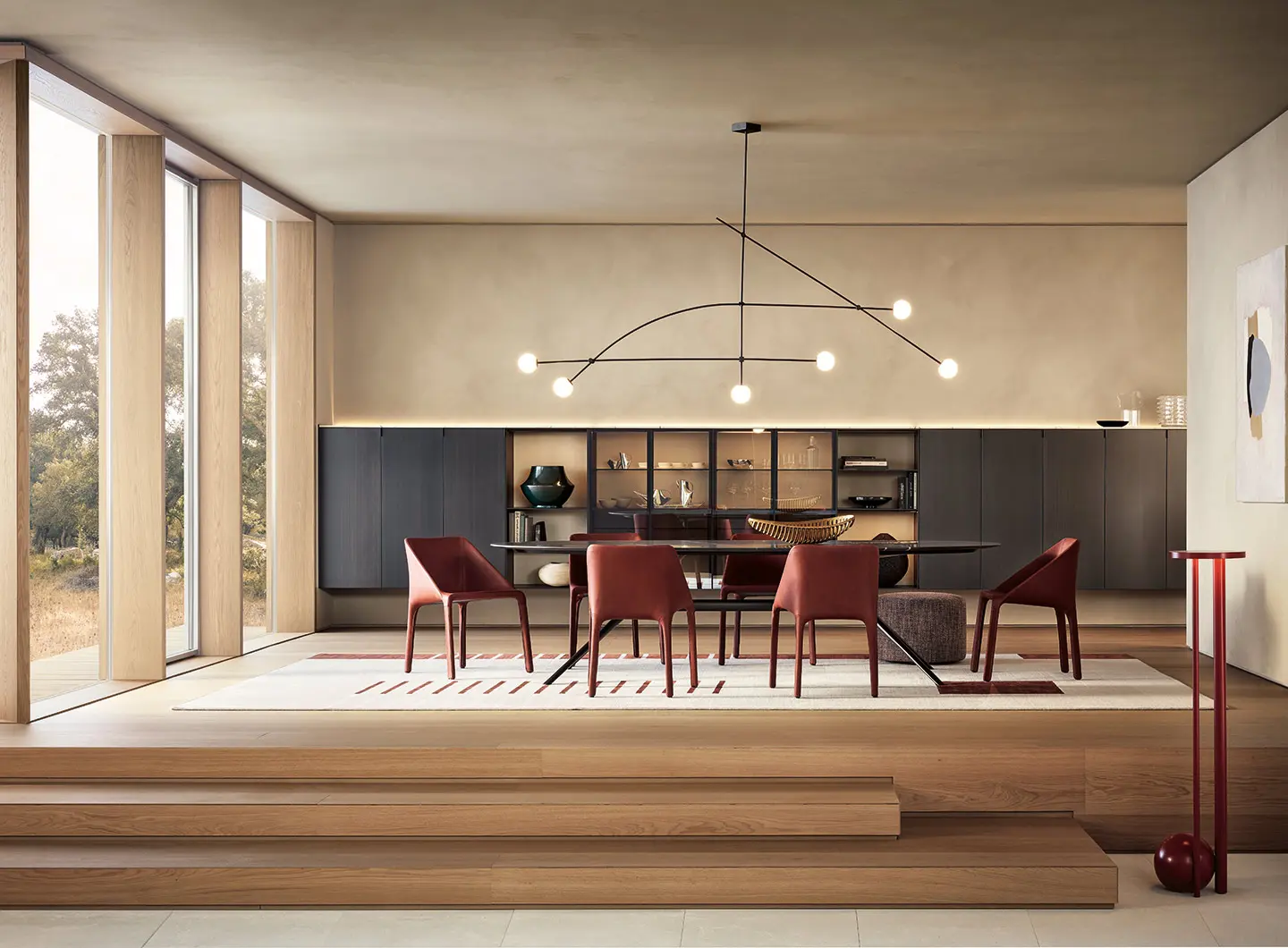
Tavolo Mondrian, design Jean-Marie Massaud - Sedie Manta, design Rodrigo Torres
Then there is also another side to Poliform, aside from its manufacturing activities, which consists of internal initiatives for the benefit of employees and a host of social and environmental activities, in the awareness that now more than ever, companies have a duty to be socially responsible, respectful of the territory, the community and the system in which they operate. Poliform’s various productive units are located in parts of Brianza where nature is seen as an asset and a heritage that must be protected, testament to its ties and involvement with the life of these places. It is an ethical awareness that recognises the influence its presence and industrial activities have on the community, in terms of common social development and financial wellbeing.
The upcoming generations, the human capital of the future, are particularly dear to this far-sighted company, which offers internships at its facilities to a number of students from within the area. Over the years, the company has also supported a number of cultural development and research programmes through publications and competitions and has consistently lent its support to sports ventures and associations.
With 700 members of staff, 600 of them in Italy, 2 foreign commercial partner companies and 3 subsidiaries, it is a point of reference for the world of design and an expression of Italy’s gift for “doing things well” for which it is lauded the world over.


